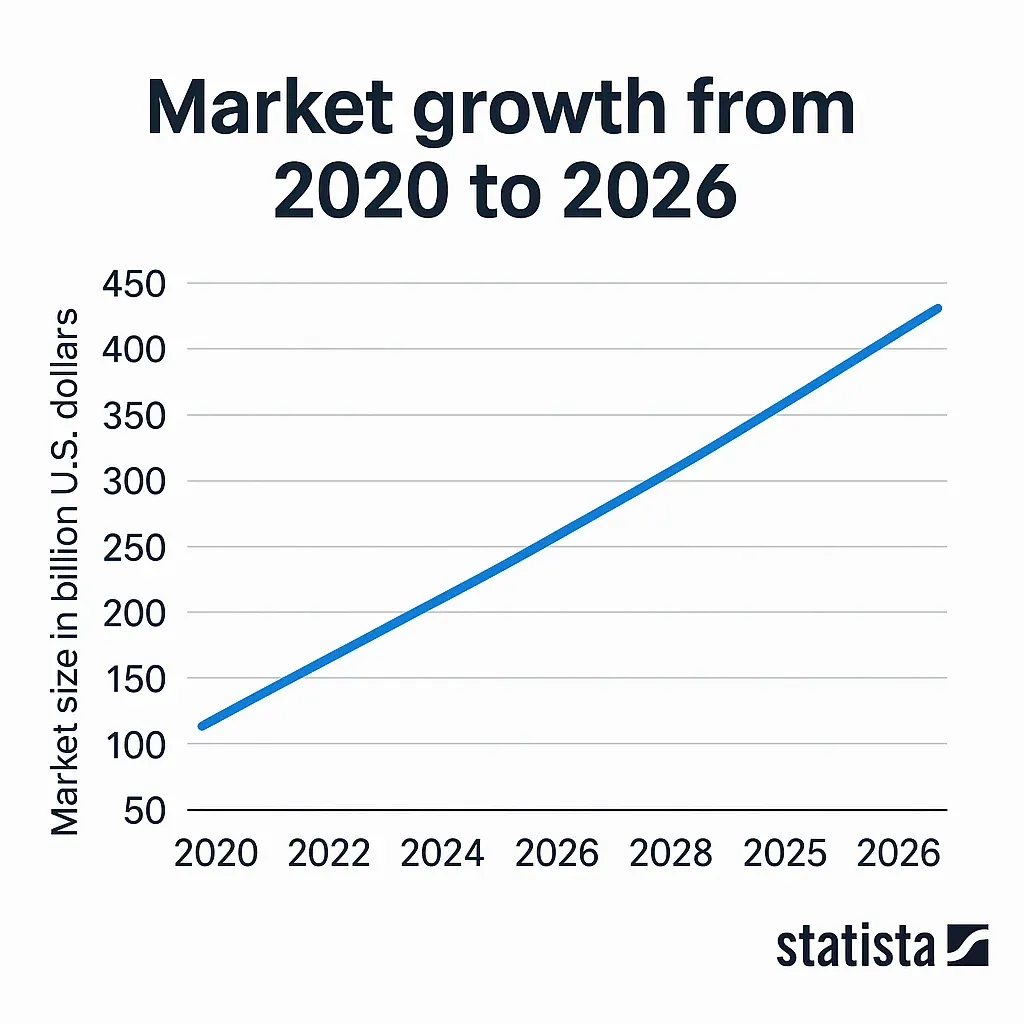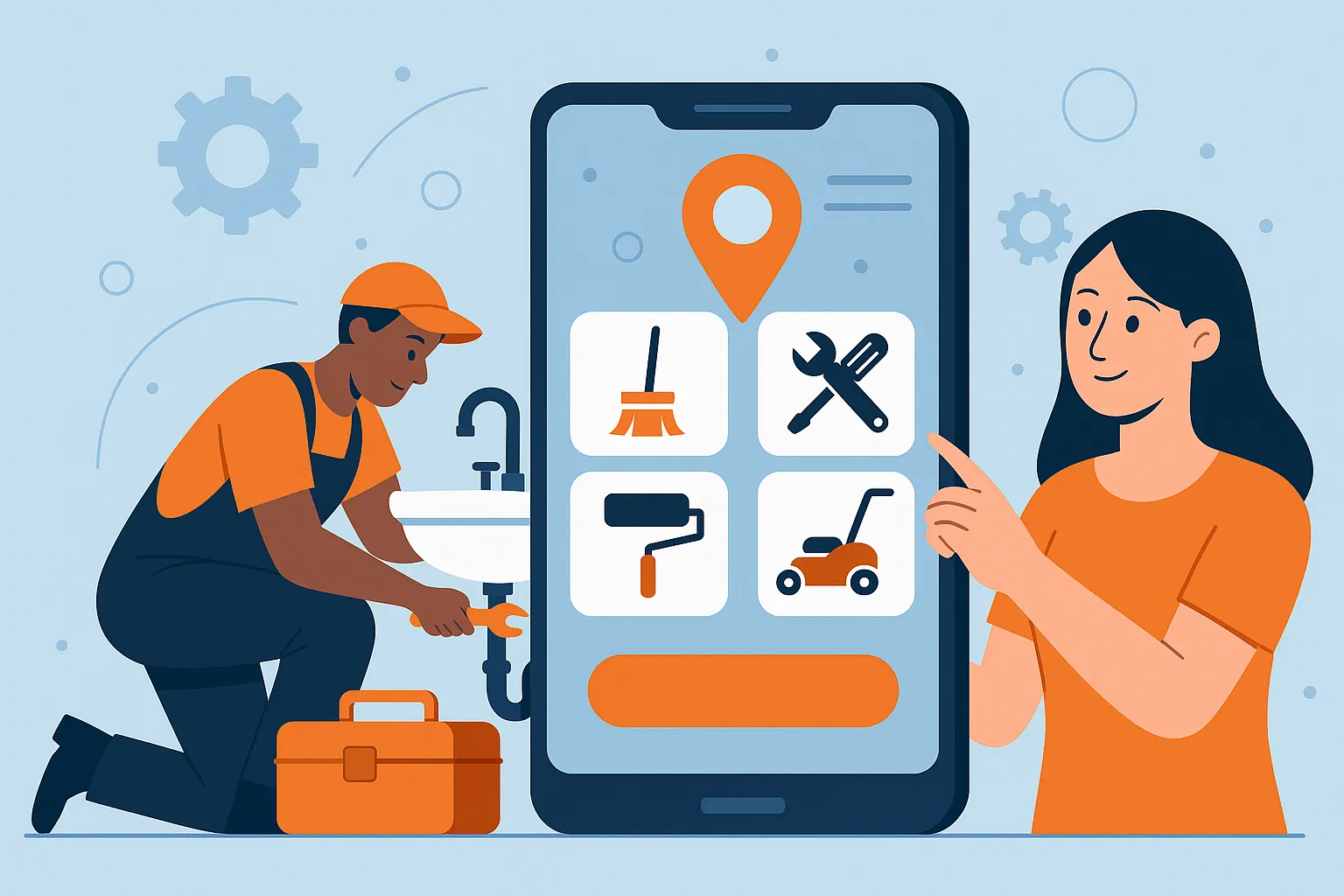The digital home services market is booming — and 2025 may be your golden ticket to tap into this lucrative domain. With millions of homeowners increasingly turning to online platforms for everything from plumbing to pest control, launching a home services marketplace app isn’t just a smart idea; it’s a highly profitable one.
Whether you’re a startup founder, a seasoned entrepreneur, or a digital agency exploring the next big niche, this blog will help you uncover the most profitable home services marketplace apps to launch in 2025. We’ll dive into the market trends fueling this wave, spotlight the top app startup ideas, break down development costs, and share expert tips for success. And yes, we’ll also show you how clone app development with Miracuves can drastically reduce your time to market and boost your ROI.

Why Home Services Apps Are a Hot Opportunity in 2025
The global home services market is projected to reach $1.14 trillion by 2026, according to Statista. From routine cleaning and handyman work to smart home installations and lawn care, the scope is vast and expanding. Post-pandemic behavior shifts have solidified digital-first approaches — people now expect to book services as easily as ordering food.
Market Insights That Matter:
- CB Insights reports a sharp rise in venture capital investments in proptech and on-demand services platforms, with several startups securing $10M+ rounds.
- Consumers prioritize convenience, trust, and transparency, which marketplace apps uniquely provide.
- The evolution of AI-powered scheduling, chatbots, and location-based services has significantly enhanced user experience and operational efficiency.
Despite this growth, the market still suffers from fragmentation and inconsistent quality control, leaving a gap for startups that can offer vetted professionals, seamless booking, and reliable service.
Read more: How to Start a Home Services Marketplace Platform Business
Top Profitable Home Services App Ideas to Launch in 2025
1. On-Demand Cleaning Services App
A convenient platform that connects users with trusted cleaning professionals for homes, offices, and specialty deep-cleaning services. It ensures high availability, real-time scheduling, and vetted service providers. Ideal for urban households with busy routines.
Monetization: Commission per booking, subscription for recurring services
Why it works: Rising hygiene awareness, dual-income households, and urban living fuel steady demand.
2. Handyman Services Aggregator
A centralized app offering a variety of handyman services — from plumbing and carpentry to installations and furniture assembly. Users can easily browse categories, compare prices, and book skilled professionals. Perfect for simplifying household maintenance.
Monetization: Service fees, lead generation, priority listing for professionals
Why it works: Homeowners prefer bundled solutions over calling different specialists.
3. Home Renovation & Interior Design Marketplace
This platform enables users to connect with designers and renovation contractors for consultations, project estimates, and service bookings. It brings transparency and professionalism to home transformation projects. Great for homeowners looking to revamp spaces.
Monetization: Referral commissions, featured service provider listings, premium subscriptions
Why it works: The housing boom and remote work trends have increased home improvement budgets.
4. Pest Control Booking App
A niche, high-trust platform connecting users with certified pest control providers for homes and offices. Users can schedule recurring visits or urgent treatments, ensuring safety and hygiene. Seasonality makes it ideal for recurring revenue.
Monetization: Pay-per-booking, service bundles, upsells (e.g., yearly contracts)
Why it works: Recurring seasonal need and a high trust factor requirement make this ideal for platforms.
5. Lawn Care & Gardening App
A specialized app for booking lawn mowing, gardening, landscaping, and plant care services. It caters to eco-conscious users and seasonal yard maintenance demands. Users can compare service packages and book instantly.
Monetization: Subscription packages, one-time bookings, cross-sells (fertilizer, tools)
Why it works: Demand spikes during spring-summer, with a growing eco-conscious customer base.
6. Smart Home Setup & Repair Services
Connect users with professionals to install, troubleshoot, or optimize smart home devices like thermostats, security systems, and voice assistants. With rising smart tech adoption, this app serves a growing market of tech-savvy homeowners.
Monetization: Hourly rates, affiliate commissions on devices, bundled packages
Why it works: The adoption of smart home tech is projected to hit 400M households globally by 2025.
7. Home Appliance Repair Services App
A dedicated platform for booking certified appliance technicians for repairs on ACs, washing machines, refrigerators, and more. Helps users save on replacements and supports sustainable living. Fast response and cost comparison features boost usability.
Monetization: Commission per service, extended warranty upsells
Why it works: Appliance sales are rising, but replacement costs drive users toward repairs.
What Makes an App Profitable in the Home Services Niche?
Successful apps in this space often share a few key traits:
- Recurring revenue through subscriptions or contracts
- High retention from seamless UX and quality professionals
- Low overhead due to a platform-based (vs. owned labor) model
- Smart acquisition via referrals, geo-targeted marketing, and SEO
Using clone app development from Miracuves offers a serious edge. You get a tested UI/UX framework, robust backend logic, and ready-to-scale architecture — all without burning a hole in your budget.
Cost to Build a Home Services App in 2025
The development cost for a home services marketplace app can range from $15,000 for a basic MVP to over $120,000 for an advanced, feature-rich version.
Launch Your Home Services Marketplace Platform in Just 3–6 Days — Go Live with Miracuves from $2,500 to $3,000!
Key Cost Factors:
- Platform type: Android, iOS, or cross-platform
- Backend logic: Booking engine, payments, notifications
- UI/UX complexity: User flow, design sophistication
- Third-party integrations: Maps, payment gateways, CRMs
Opting for clone solutions from Miracuves can cut costs by up to 60% and reduce time-to-launch to mere weeks. Clone-based platforms are not just cost-effective — they’re scalable, secure, and tested in real-world scenarios.
Tips for Founders to Launch a Successful Home Services App
- Start with an MVP
Validate your idea without going all-in. Focus on the core service, booking, and review systems. - Prioritize UI/UX
A clean, intuitive interface directly impacts retention. Consider a mobile-first design approach. - Conduct Market Validation
Survey your audience, build a waitlist, or launch a landing page to test interest before investing heavily. - Build for Scale
Ensure your backend can handle traffic spikes, provider onboarding, and user growth. Use modular tech stacks. - Plan Post-Launch Growth
SEO, referral programs, and in-app loyalty features help your app gain traction sustainably.
Conclusion
The surge in home service demands, paired with evolving tech and digital-first consumer behavior, makes 2025 a breakout year for launching profitable home services marketplace apps. Whether it’s cleaning, handyman work, smart tech setup, or lawn care — the window is wide open for founders who act fast.
Don’t let development delays hold you back. With Miracuves’ clone app solutions, you get a feature-rich, scalable, and white-label product ready to hit the market quickly — and profitably.
At Miracuves, we help innovators launch high-performance app clones that are fast, scalable, and monetization-ready. Ready to turn your idea into reality? Let’s build together.
FAQs
Q:1 How much does it cost to build a home services marketplace app?
The cost to build a home services marketplace app with Miracuves ranges from $2,500 to $3,000, including a complete Go-Live setup in just 3–6 days.
Q:2 What features should a successful home services app include?
Real-time booking, ratings, provider profiles, secure payments, notifications, and admin control panel.
Q:3 Is it better to build from scratch or use a clone solution?
Clone solutions offer faster development, proven UX, and lower risk — ideal for startups.
Q:4 Can I scale a clone-based app easily later?
Yes. Miracuves clones are modular, allowing full customization and scaling as your user base grows.
Q:5: Do I need to onboard service providers manually?
You can start manually and later automate onboarding with KYC, ratings, and verification modules.
Q:6: What’s the average time to launch a home services app using a clone?
3–5 weeks is typical with Miracuves’ white-label solutions.








